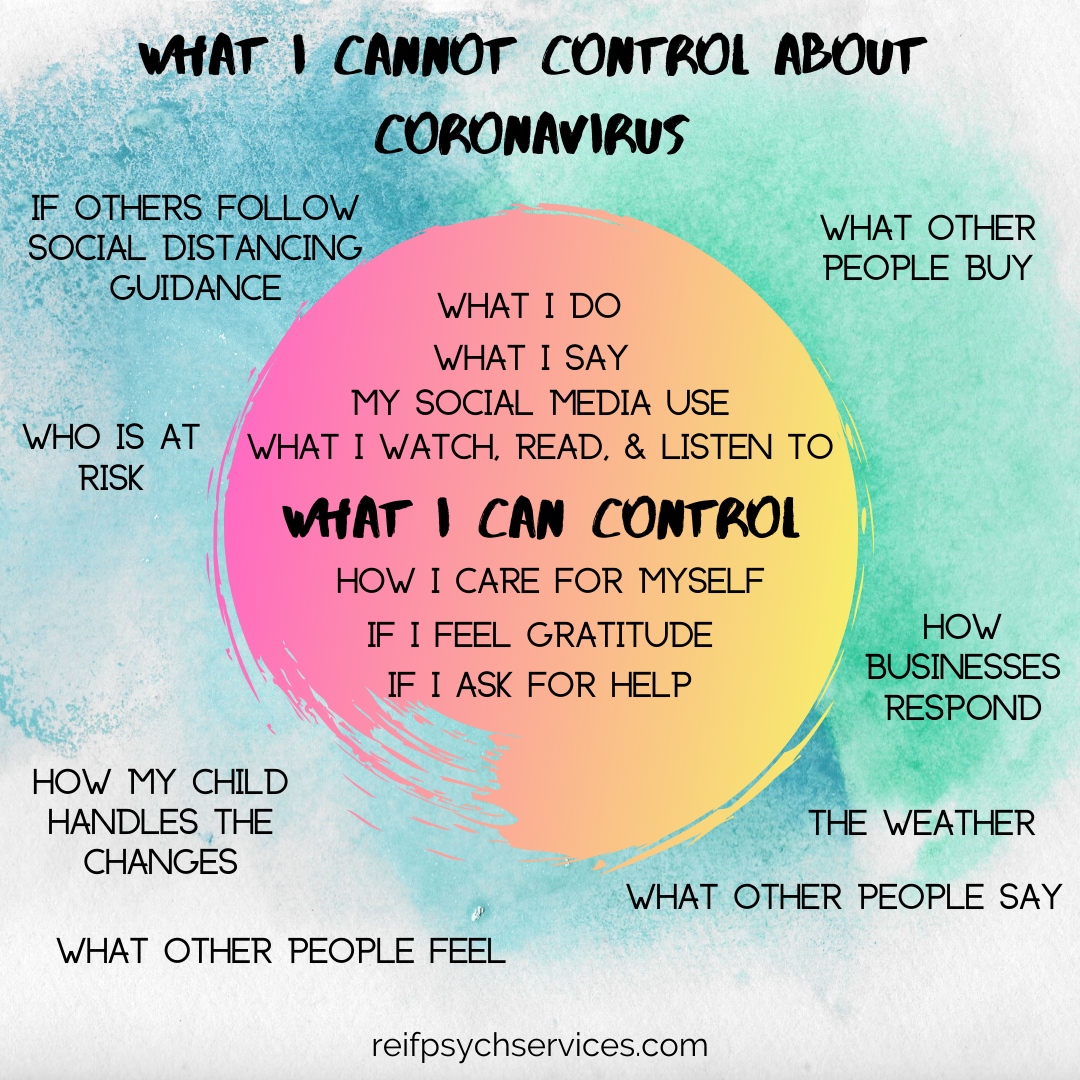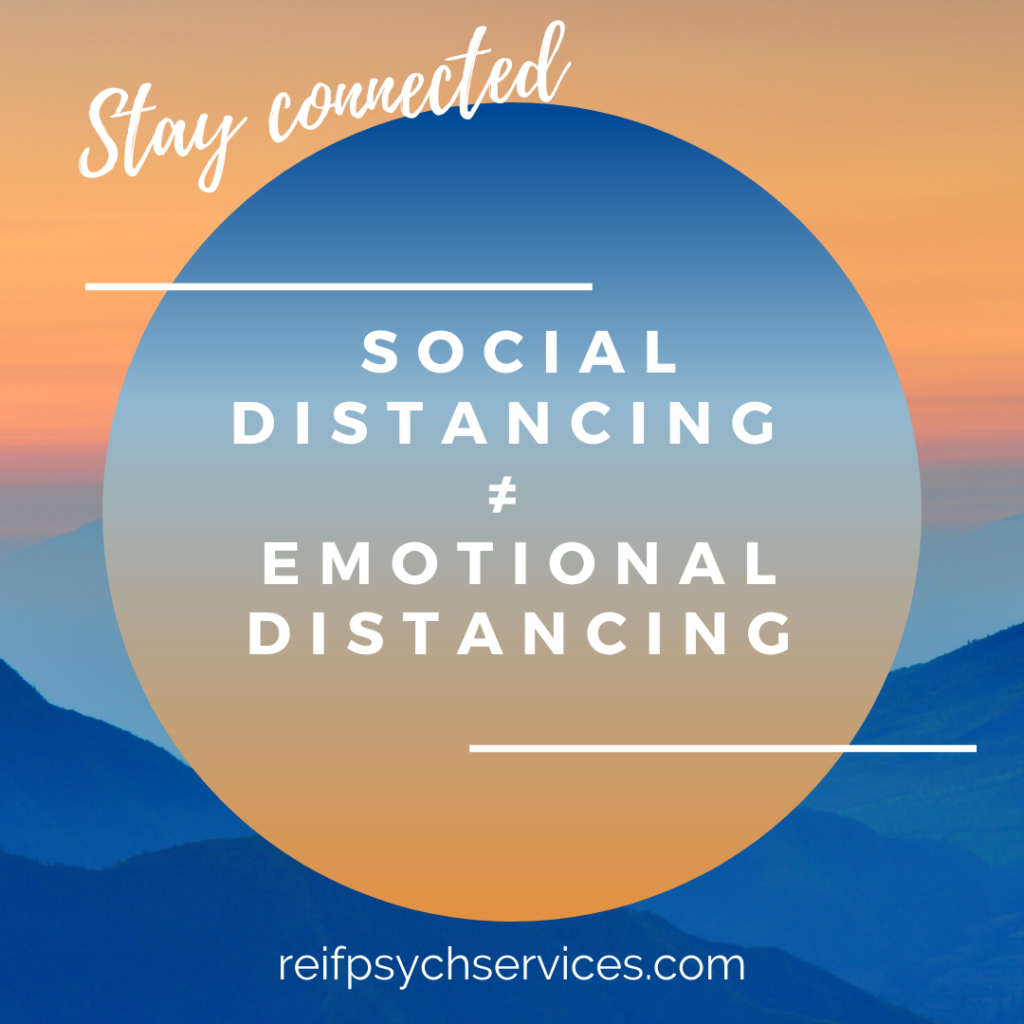I never thought I’d add ‘global pandemic’ to my list of reasons that special-needs parents love online counseling. And yet here we are.
In the last week, as concern about Covid-19 has increased, I have come to recognize some things that make my counseling clients who are raising kids with disabilities especially adept at handling this time of scarcity, uncertainty, and isolation.
Of course, I have always known how resilient my clients are.
Their challenges are often invisible, and so everyone questions their choices and values. Adversity, fatigue, and loneliness are all daily realities for many of them.
I thought I knew how much grit they had.
Turns out, they had even more than I realized.
Here are the four unique ways that special needs parents are able to handle Coronavirus stress.

1. Tolerating ambiguity
“It would be so much easier if we knew when this would end.”
I’ve heard that sentiment echoed from friends and family members, even from other therapists. It seems that taking things one day at a time is much easier when you know how many days that will take.
Yet I have not heard any of my clients who are special needs parents express this sentiment.
They understand that we are in uncertain and scary times. They feel the weight of the responsibility that each of us has to maintain social distance.
And yet, for special needs parents, this is not the first time that life hasn’t looked how they expected it to look.
This is not the first time that they’ve been told they’re going to have to do something that feels impossible.
And this is not the first time that they’ve had no guarantees.
These parents have become exceptional at accepting ambiguity and uncertainty. They don’t waste time and energy fighting change, they simply take steps to adapt as quickly as possible.
Even when it feels like the whole world has been upended.
To paraphrase one client I saw this week:
“If you wait for normal to return, you may be waiting forever. I’d rather just get on with now, and to hell with normal.”
2. Focusing on what they can control (and only on what they can control)
You can only change what you’re in charge of. That’s a concept that comes up a lot when I’m meeting with special needs parents for therapy.
One client even used my ‘what I can control’ worksheet from this blog post, and amended it to help them handle Coronavirus stress. I think this sums it up beautifully:

3. Knowing when to accept ‘good enough’
I know you’ve seen the color-coded daily children’s schedules floating around social media. You’ve probably also seen the joke versions, where the whole thing is scratched out and relabeled “Screen time’ or ‘Annoy sister’.
Many parents are leaning in to juggling full time remote work while parenting. They’ve also purchased materials and curricula, and cleared off the dining room table to make home-school happen.
As much as my clients recognize that their children thrive with routine, not a single one of them has initiated a home-school routine.
In talking about their choice not to do so, many have reflected on knowing their own limits. Many parents raising kids with disabilities have learned to sit with the discomfort of knowing that they cannot do all the things that would be good to get done.
Believe me, my clients have tried. They’ve tried to do it all, all at once.
To advocate for their child to get the right services and accommodations, keep a clean house, excel at work, have intimacy with their partner, maintain social commitments with friends and family, volunteer at church, and get to the gym 5 times a week. Oh, and drink enough water.
Usually, trying to do all those things at once and feeling like a failure is what led them to counseling. That’s where we discuss the benefits of recovering from perfectionism, and instead excelling at ‘good enough-ism’.
Having already learned this lesson, the parents I support in my counseling practice are focusing on other things this week. There will be a time to resume school work. But they are content with accepting that they don’t need to do it now.
Instead, many of them are simply observing and meeting their children’s emotional needs right now.
They are taking mindfulness walks in the park.
Watching their child’s favorite episode of Spongebob even though they’ve seen it hundreds of times.
They are spending extra time just being together with no expectations, rather than setting academic goals.
They understand that it’s more important to ensure that their child stays emotionally regulated during this intensely stressful time. It’s OK if learning gets interrupted to meet this need, they know, because without emotional regulation, children can’t learn.
These special needs parents recognize that good enough may actually be perfect right now.
4. Understanding that social distancing is not the same as emotional distancing
In the last week, my clients have told me some creative ways that they’ve managed to keep connected.
- One client set up Skype so that her son could play Battleship with his grandfather.
- One client led her Moms of rare disease kids support group online. She’d even taken the courtesy of shipping each group member the same bottle of wine via Amazon, so that they could all share a virtual drink as they chatted via Zoom.
- Many clients have been attending religious services, gym classes, and book clubs virtually.
These parents know intimately the pain of feeling isolated. Whether because of their child’s medical needs or their behavior, they have often missed out on family or work events. They’ve skipped countless social, spiritual, and self-care commitments because their child needed them. They know how damaging it is to lose touch with loved ones, and with the places and activities that keep them feeling whole.
So, they are showing up emotionally for everyone else who is just now starting to know the pain that isolation brings. They are reaching out, maintaining connection, and validating how hard it really is to feel alone in your struggle and fear.
Because that’s a feeling that special needs parents know all too well.












